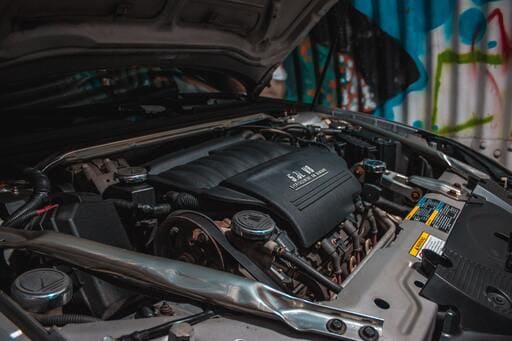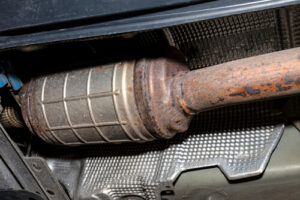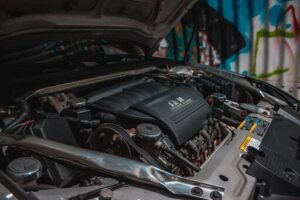What is Carbon Build-Up?
For any vehicle to run, it requires a source of fuel, whether that be diesel or petrol. When your engine burns fuel, carbon is created in the process, similar to that of a fireplace which creates soot in a chimney.
In an engine, carbon will build up inside engine cylinders, and intake and exhaust valves, affecting the running of the engine and creating issues.

What causes carbon build-up?
If left for too long, carbon build-up can lead to many problems affecting your intake valves and fuel injectors.
Intake Valves
A build-up of carbon on the intake valves can reduce engine power and fuel economy by restricting the cylinder’s airflow. Intake valve deposits are an expected part of combustion but can accumulate faster if the valve guides or seals become worn-out, or are in vehicles where there is a varied size valve opening, making carbon particles more exposed.
Fuel Injectors
An engine that runs lean will have an excessive amount of air and not enough fuel due to carbon build-up on the injector tip. As a result, many issues can arise including engine misfires, poor fuel economy, increased emissions and rough idling. As deposits form as soon as you switch off the engine, making multiple short trips can be damaging to your engine.
How to detect carbon build-up?
Carbon-build can cause various problems including:
‘Check engine’ light is turned on
The amber engine light appearing on your dashboard indicates that something is wrong with your engine. Whilst this may not be a direct indication of carbon build-up, it will alert you that you need to have it checked by a professional. If left unchecked, the issue could get increasingly worse potentially resulting in irreparable damage.
Cold stalling
If you experience your car stalling in cold temperatures, it may be a result of carbon build-up. As carbon will wear your car down quickly, it will be slower when reacting to cold weather.
Engine misfires
Whilst not as common as other problems, carbon building up can cause one or more engine cylinders to misfire, leading to poor performance issues such as your vehicle stumbling or losing speed.
Reduced fuel efficiency
As carbon build-up can cause the vehicle’s performance to drop, you will begin experiencing reduced fuel efficiency and more frequent trips to the petrol station.
Poor acceleration and loss of power when driving at high speeds
If you notice your car struggling to build or maintain high speed, carbon build-up may be the reason. Please note that power and acceleration are also affected by the weight-load of the car, so having passengers or a loaded boot will have an effect on the vehicle’s speed.
How to prevent Carbon build-up in the engine?
Your car can start to feel the effect of carbon build-up after 20,000 to 25,000 miles, which includes fuel economy and performance issues. There are many measures you can take to prevent and/or clean carbon build-up before it’s not too late, including:
Regular oil changes
Changing your car’s oil regularly not only helps prevent carbon build-up but also allows your engine to run longer and stay cooler. An oil check is part of your MOT, however, It is recommended to change your oil every 5,000 – 7,500 miles.
Use manufacturer-recommended oil
Avoid using oil that has not been recommended by the manufacturer. If you use oil that fails to meet the manufacturer’s specifications, any damage caused will not be covered by the manufacturer’s warranty.
Replace your spark plugs at the recommended mileage
Spark plugs wear out over time, and if left can result in an underperforming car or an engine that does not run. Depending on your car, conventional spark plugs require changing between 30,000-50,000 miles and long-life spark plugs require changing between 60,000-150,000 miles.
Use premium quality fuel
Premium petrol uses a higher octane rating than regular petrol. Octane is found in petrol and helps determine its performance in high compression engines.
Premium diesel uses a higher cetane number and includes detergents that clean the fuel system at the same time. If you are driving an older vehicle, premium diesel can be especially effective as it will flow through the fuel system, removing any carbon build-up.
We’re here to help!
If there is too much carbon buildup, we are on hand to help. Click or call to book your service, we collect your vehicle and it’s back within your reach in a time-efficient and hassle-free manner.




























